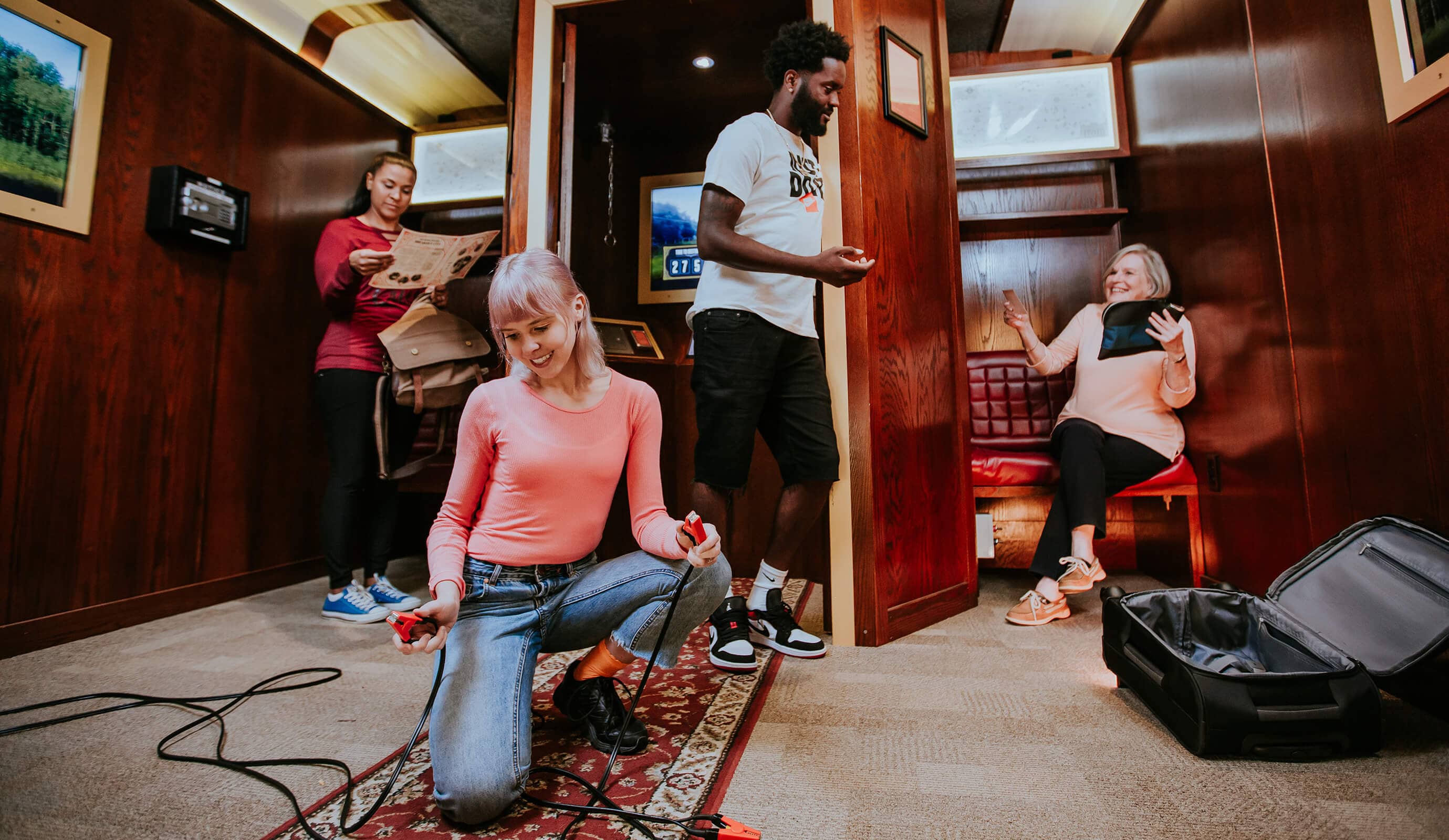Thrilling Escape Room in Minneapolis Mall of America-- Get Now
Thrilling Escape Room in Minneapolis Mall of America-- Get Now
Blog Article
Team Approaches: Just How to Team up Efficiently in an Escape Space
Groups should proactively pay attention to each member's understandings, designate roles that straighten with individual toughness, and keep regular check-ins to make certain focus and prevent redundancy. By promoting a setting that values communication and flexibility, groups can substantially heighten their performance and success rates.
Establish Clear Interaction

To help with clear communication, it is necessary to designate a central point of get in touch with for information dissemination. Short, concentrated updates from each group member can keep the group educated without overwhelming them with details.

Designate Duties Tactically
While clear communication sets the foundation for efficient synergy, assigning functions purposefully ensures that each staff member's staminas are utilized properly. In a retreat room circumstance, the time-sensitive and intricate nature of difficulties necessitates an efficient method to task delegation. By determining and leveraging private expertises, teams can enhance their problem-solving capabilities and boost total efficiency.
Somebody with an eager eye for information may succeed in locating concealed objects, while a rational thinker can be better suited to solving problems. This role often needs strong business and interpersonal skills.
Second, ensure that roles are flexible and versatile. As brand-new challenges emerge, the group has to have the ability to pivot, reallocating jobs as required. This flexibility assists maintain energy and prevents bottlenecks that could take place as a result of inflexible role assignments.
Ultimately, a tactical method to function assignment not only makes best use of the strengths of each group member but also cultivates a natural atmosphere, driving the group towards an effective escape.
Utilize Diverse Abilities
Identifying and utilizing the diverse abilities within your team can dramatically elevate your performance in a getaway area. Each staff member brings one-of-a-kind strengths to the table, and successfully leveraging these capabilities can quicken analytical and enhance total efficiency. A group member with strong logical abilities might stand out at understanding complex codes or patterns, while another with keen observational abilities might promptly identify concealed hints that others could forget.
Reliable interaction is essential to using these varied skills. Urge employee to articulate their understandings and concepts without delay, ensuring that all potential services are thought about. This inclusive strategy fosters a vibrant environment where imagination and essential reasoning can thrive. Furthermore, designating tasks that line up with each member's toughness can avoid bottlenecks and ensure that progression is constant.
In addition, variety in abilities typically translates to diversity in believing designs, which is vital in an escape room setup. While some obstacles might need rational thinking and accuracy, others might take advantage of creative and side thinking. By recognizing and leveraging this diversity, groups can resolve a more comprehensive series of difficulties a lot more effectively, therefore enhancing their possibilities of an effective retreat.
Manage Time Properly

Determine noticeable puzzles and split jobs based on group participants' toughness, making certain that nobody is still. This method can help maintain the group focused and protect against time from sliding away undetected.
Furthermore, avoid passage vision. If a challenge is taking too long, revolve staff member or go on to one more difficulty, returning later with fresh viewpoints. Communication is paramount-- maintain everyone updated on addressed puzzles and staying jobs to avoid repetitive initiatives.
Lastly, utilize any type of hints or clues sparingly yet strategically - best escape room. Knowing when to request for aid can save beneficial time. By adhering to these time administration concepts, teams go to my blog can significantly enhance their chances of an effective and satisfying retreat room experience
Debrief and Reflect
Representation is a crucial facet of team development and renovation in the context of escape areas. Once the challenge is finished, whether successfully or not, it is vital for the team to participate in a structured debriefing session. This procedure allows employee to examine their performance, identify staminas, and pinpoint areas for renovation.
Begin the debrief by discussing what worked out. Highlight details circumstances of reliable communication, analytic, and look what i found cooperation. Recognizing these positive behaviors reinforces them and urges their rep in future difficulties.
Next, attend to the obstacles experienced. Talk about moments of confusion, miscommunication, or ineffective approaches. Motivate an open and useful dialogue where employee can share their viewpoints without anxiety of criticism. This fosters a culture of continuous enhancement and understanding.
Conclusion
Finally, effective collaboration in a getaway room is predicated upon clear interaction, calculated role tasks, the reliable application of diverse skills, and competent time management. Regular check-ins and structured debriefings are vital for keeping focus and fostering continual improvement. By creating a cohesive and adaptive group environment, the possibility of efficiently solving puzzles and achieving the purpose of escaping the space is considerably improved. This technique not more just makes certain success yet likewise advertises collective development and understanding.
Report this page